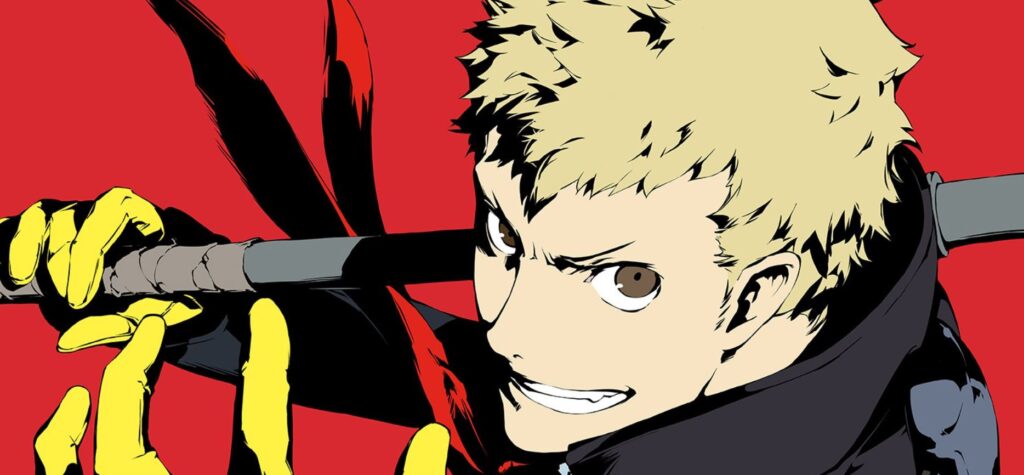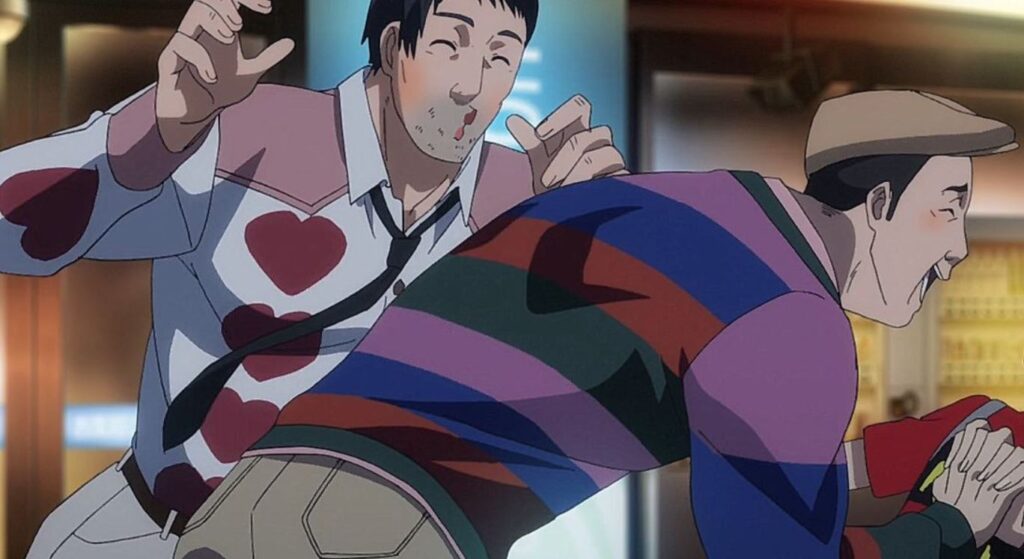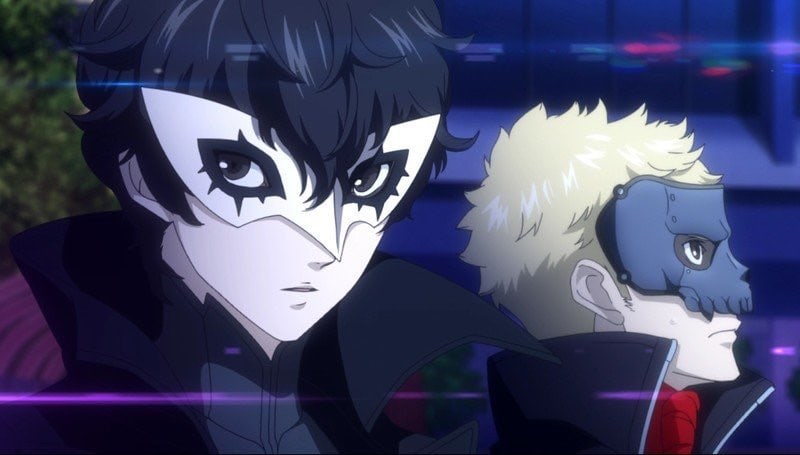
Persona 5 undermines its own themes with its portrayal of queer communities
Persona 5 is a very good game. Excellent, even; terrific, if I were to use a third adjective, but let’s not get out of hand. I need to open with this, because Persona 5’s lacklustre representation of queer and LGBTQ+ people, aside from being frankly shoddy, critically and arguably irreparably undermines its themes – and with Persona 5: Strikers, the game’s real-time hack and slash sequel, having just come out, it would be interesting to take a look at the original story and see what we can learn from its narrative choices.
First, a step back. The argument that Persona 5 ‘critically undermines its own themes’ is a heavy one, but before tackling it we should talk about what those themes are.
Ever since the beginning of the game’s development cycle, the team at Atlus had a particular idea in mind when they were working on the game; we know, because series director Katsura Hashino discussed it in an interview. “I feel that in today’s world,” Hashino said in 2014, “there’s no shortage of people that are bored and discontent with their lives… [these characters, ultimately the Phantom Thieves] are out to destroy that which suffocates people in today’s society and, again, keeps them chained down in place.”
Regardless of how far we accept this statement as binding on the game’s narrative, I don’t think it’s particularly controversial to say that the spirit of it is very much at the beating heart of Persona 5, with its thematic imagery of chains and its constant discussion of reshaping society and taking down corrupt figures of authority. It is a game that supports the idea of individualism over collectivism; that people should be free from a responsibility to society and its expectations, especially expectations about how young people should conform to an existing status quo in pursuance of the betterment of the community.
If we critically analyse the game in terms of how well it delivers this idea through its narrative, there is a lot that it gets right: the game’s rising threat is posed by a villainous conspiracy and its sinister leader, a conniving member of the National Diet who uses murder and blackmail to pursue a campaign to become prime minister of Japan and ultimately enforce his will on the nation. This cues up the thematic idea of an all-powerful central state, crushing individual autonomy in favour of pursuing a group objective, an idea that is foiled by the picaresque Phantom Thieves who ultimately defeat it.
The game hits a sour note, however, when you account for its representation of LGBTQ+ people. A lot of the game’s most egregious decisions have already been heavily reported on; in one scene in the original, the only two openly queer characters in the game, a pair of gay men you bump into while on a mission in Shinjuku, are actively predatory and harass an underage male student – your teammate, Ryuji – before carting him off somewhere. It is seriously incredibly telling about the game that they are the only openly non-queer characters you meet. (In the interests of fairness, Atlus altered this scene for Persona 5’s expanded edition, Persona 5: Royal – but the problematic power dynamic between two gay adults and a high school student remains.)

There’s also a more general undercurrent of swaddling heteronormativity throughout the game’s running time. You can date almost any major female character, up to and including your homeroom teacher, but your plucky, Bad Kid best friend with dreamy eyes who saves your life on the regular and goes as far as to say “I guess bein’ free is like… It’s like how I feel when I’m talkin’ to you?” No. You two are ‘Just Friends’ and no more. Sorry.
Kenneth Shepard, a gay video games journalist writing for Paste Magazine, described the situation aptly in 2017; that “everyone in this game assumed I was straight, and those expectations infected conversations like a disease… it shows me it views me at best as a joke and at worst something revolting to be feared.” No player action or combination of player choices can shake these expectations; every time a dialogue option comes close to something potentially homoromantic or, at the bare minimum, un-straight, the world recoils at it. If you tacitly attempt to express feelings for Ryuji on Valentine’s Day, for instance, your vague effort is shot down unceremoniously and never addressed again.
Leaving aside the very obvious criticisms of the game’s choice to represent queer people in that way – and that’s not “leaving aside” because it’s not worthy of discussion, and parenthetically that discussion has already been done far better by someone else – how do you square a game that deals in freedom from societal norms by gripping desperately to the homophobic, conservative status quo? That is to say: can we take a game about seizing your identity from the suffocating chains of civil society seriously if it’s only some aspects of that identity it’s okay with you seizing? The answer, in my view, is clear: we cannot.
Abstracting that thought further proves the game’s supposed devotion to its themes to be even more ridiculous. Some norms are acceptable; others – take the norm that being a non-queer person is acceptable – are not. The game isn’t proposing the obliteration of an existing unjust order, but rather the institution of a new, slightly less unjust one: a centrist utopia. An order of its own design, one where you’re free to be yourself, within certain heteronormative parameters. Think less ‘freedom’, and more ‘status quo, lite’.
With that in mind, let’s go back to thinking about Strikers and seeing what can be done to improve on this track record in Atlus’ next go round. What lesson can their newest entry take away from its predecessor, besides ‘don’t demonise queer people’? It’s that when it comes to theming and narrative design, every choice is important. The scene in Shinjuku is a dire example of where that went very wrong, and there is a whole separate vein of critique to be tapped about why the studio deigned to include a pair of outwardly predatory queer characters in the first instance – the more generalised moral we can draw, though, is one that anyone writing a story can take away.

The way you represent groups of people matters, not only because the way people are represented in media affects how they’re treated in society, but also because how you represent them affects how players – or readers, or viewers – will internalise whatever message you’re trying to get them to find. If you’re writing a story about freedom, but you don’t give certain characters freedom because some aspect of their nature, like their sexuality, is uncomfortable to you, and you don’t address it critically, then bad news: you’re not writing a story about freedom.
Assuming the Phantom Thieves are still on their freedom from society kick and we can look at it through the same thematic lens, does Persona 5 Strikers learn this lesson? Well, there aren’t any gay characters, as far as I can tell, and there are no actively controversial scenes featuring queer characters, but don’t take either of those things as an endorsement per se. I was cautiously optimistic about this new entry, especially when I found out the setting was a massive road trip around the country – a literal transitory period suggesting a metaphorical one, transitioning from one understanding of oneself to the other? The queer themes write themselves.
Unfortunately, unlike this imaginary construction of the game I came up with in my head, the reality falls short. The game is still relentlessly heteronormative, and while you can occasionally go on platonic dates with “The Boys” – Ryuji and Yusuke, two of your Phantom Thief companions – there’s always a certain amount of heterosexual expectation. One example strikes me as particularly descriptive: at one point during the story, you can go on a date with one of your female companions or the collective Boys on a ferris wheel, a supposedly romantic setting, and while your dates with the girls will generally lead to them opening up to you about some emotional situation they’re contemplating or personal strife they’ve overcome, going on a date with The Boys results in them sitting around awkwardly for a second before launching into a discussion about girlfriends. Ryuji makes you promise to tell him if you ever get one, and there is no option to tell him the prospect is uninteresting to you.
This is especially instructive about how little the game has progressed when loosely interrogated. Your female companions are presented as emotionally mature and vulnerable, while going on dates with the male characters presents them as stunted, overly defensive, and kind of queerphobic. Not only does this sell a weird, warped view of what men and women are “supposed” to be – sort of the opposite message to “society can’t tell you who you should be” – it also felt like I was being punished for seeking out anything other than a heterosexual dynamic. If this whole thing sounds familiar, it’s because it’s exactly the same problem Persona 5 proper has, obscured by the lack of controversy.
Still, they haven’t represented gay characters as predatory/harassing/criminal, which in the very loosest way counts for something. I guess.





